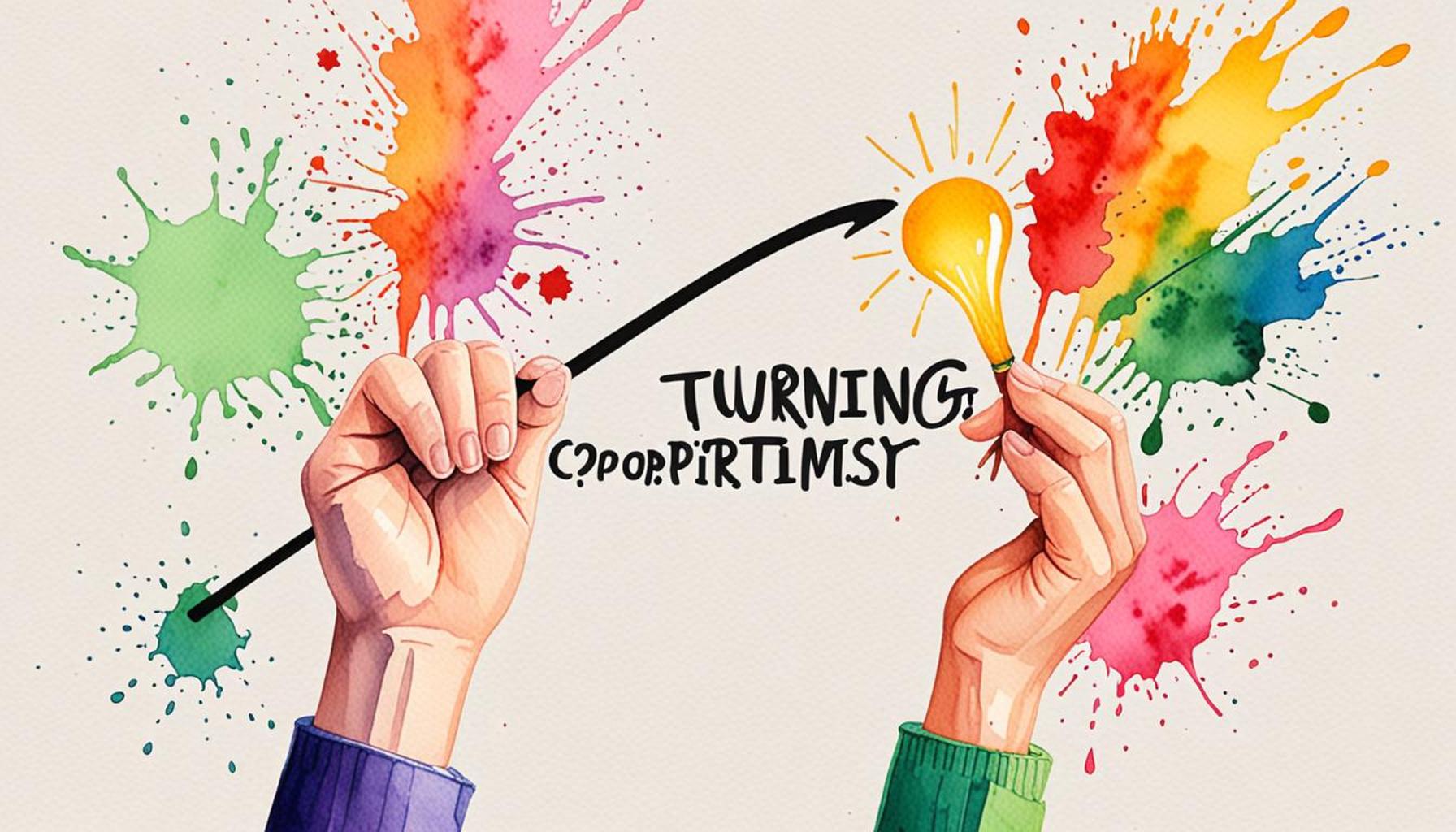The Evolution of Feedback: Modern Techniques for Learning and Growing in Digital Environments

The Evolution of Feedback in Education
The landscape of feedback has undergone a transformative journey, especially in today’s digital world. From traditional classroom critiques to real-time online assessments, the methods of providing and receiving feedback have evolved dramatically, tailored to enhance learning experiences. This shift is particularly evident in regions like Nigeria, where rapid technological advancements are reshaping educational frameworks.
One of the significant transformations in feedback mechanisms is the rise of instant feedback. Digital platforms, such as Google Classroom and Zoom, now enable educators to provide immediate responses to students’ questions and assignments. This immediacy fosters quicker learning, as students can promptly understand their mistakes and make necessary adjustments. For instance, during online quizzes, platforms can automatically grade submissions and offer explanations for questions answered incorrectly, facilitating a more engaging learning process.
Collaborative Learning Through Peer Review Systems
Another noteworthy development is the implementation of peer review systems. Tools like Microsoft Teams and G Suite for Education allow students to share their work and receive evaluations from classmates. This process not only enhances critical thinking but also promotes a sense of community and teamwork. In Nigerian educational contexts, where collaboration is often emphasized, such systems can lead to richer discussions and deeper understandings of subjects. An example can be seen in creative writing classes, where students critique each other’s stories, providing varied perspectives that stimulate creative growth.
Harnessing AI-Driven Insights
The advent of AI-driven insights marks another revolutionary change in feedback mechanisms. Advanced educational technologies can now analyze vast amounts of performance data, helping educators tailor their teaching methods to meet the unique needs of each student. In Nigeria, platforms like E-learning una that utilize AI capabilities are gaining traction, offering personalized learning pathways based on individual student performance. By recognizing patterns in students’ strengths and weaknesses, educators can better target areas that require additional focus. This approach not only empowers learners but also enables teachers to refine their instructional strategies effectively.
Such innovative feedback methods aim to cultivate a culture of continuous improvement, encouraging both learners and educators to adapt and grow. As Nigerian educational institutions embrace these digital tools, they pave the way for a more dynamic and responsive learning environment.

In this article, we will delve deeper into the myriad of modern feedback techniques, exploring their applications and impact in digital environments. We will highlight key strategies that can help individuals and organizations enhance their learning processes, ensuring growth and development in an increasingly online world.
LEARN MORE: This related article may interest you
Transforming Traditional Feedback Mechanisms
As we navigate the landscape of digital education, it is crucial to understand how feedback has been redefined. Traditional feedback mechanisms often relied on physical submissions and end-of-term evaluations, which could be tedious and lacked immediacy. Today, however, the shift towards interactive feedback mechanisms allows students to engage with their learning on a more personal level, providing opportunities for real-time insights and interactions.
In Nigeria’s increasingly digital classrooms, technology has birthed a variety of feedback tools that facilitate this new dynamic. Among these tools, learning management systems (LMS) stand out, as they serve as comprehensive platforms that streamline communication between educators and students. Whether through a mobile app or a web interface, an LMS like Edmodo or Moodle allows students to receive feedback on assignments instantaneously. This immediacy not only aids in enhancing understanding but also assists in maintaining motivation among learners, creating a sense of accountability.
Formative Assessments: A Game-Changer
Another pivotal development in the feedback landscape is the adoption of formative assessments. Unlike traditional summative assessments that only evaluate outcomes, formative assessments provide ongoing feedback that helps learners understand their progress in real-time. This approach is particularly beneficial in a diverse educational setting like Nigeria, where varying levels of academic ability are common.
- Frequent Quizzes: Educators can use platforms like Quizlet to create frequent quizzes that help gauge students’ understanding and provide immediate scores along with corrective feedback.
- Interactive Polling: Tools like Mentimeter and Poll Everywhere enable teachers to assess comprehension during lessons, allowing for on-the-spot adjustments to teaching strategies.
- Reflective Journals: Encouraging students to maintain reflective journals can offer insights into their learning processes, fostering a deeper connection to the material.
This emphasis on formative assessments cultivates an environment where feedback becomes an integral part of the learning journey rather than a mere evaluative measure at the end of a module. By focusing on incremental progress, educators can support students in identifying areas of strength and weakness, guiding them on their paths to achievement.
Implementing Gamification into Feedback Systems
Moreover, the incorporation of gamification elements into feedback mechanisms is revolutionizing learner engagement. Schools in Nigeria are beginning to explore game-based learning systems that reward students with badges, points, or levels for completing tasks and participating in discussions. This approach motivates students to be more actively involved in their learning while providing continuous feedback through scoring and achievement tracking.
As we unravel the layers of modern feedback techniques, it becomes evident that technology is not simply augmenting education; it is fundamentally reshaping the processes involved. In this digital age, adaptive feedback methods are not limited to traditional teaching settings but are paving the way for richer, more personalized educational experiences across Nigeria and beyond.
| Advantage | Description |
|---|---|
| Real-Time Feedback | Modern learning platforms provide immediate feedback, enabling learners to adapt and improve instantly. |
| Personalized Learning | These techniques allow for a tailored approach, addressing individual strengths and weaknesses in a customized learning experience. |
| Engagement | Interactive tools enhance learner engagement, helping maintain interest and motivation in digital settings. |
| Data-Driven Insights | The evolution of feedback methods offers valuable data for educators to refine their approaches and enhance educational outcomes. |
In today’s digital environment, the transformation of feedback mechanisms stands as a critical factor in enhancing learning and growth. As educational technology continues to evolve, it fosters an environment where students can thrive through agile and adaptive methodologies. Modern feedback techniques break the conventional barriers, offering a dynamic and responsive approach that aligns with the individual learning journeys of each student. By leveraging real-time data and personalized strategies, educators are equipped to create more engaging lessons. This interaction not only enriches the learning experience but also provides actionable insights, guiding both educators and learners toward success. Such methods emphasize the need for continuous adaptation and improvement, ultimately pushing the boundaries of traditional education practices. Exploring these innovations unveils a vast landscape filled with opportunities for both personal and academic growth.
ADDITIONAL INSIGHTS: Expand your understanding here
Harnessing Data Analytics for Personalized Learning
In our digital-driven world, data analytics has emerged as a pivotal player in shaping feedback mechanisms within educational environments. Data-driven insights enable educators to tailor learning experiences specific to individual student needs, particularly in diverse settings like Nigeria’s classrooms where students come with varying backgrounds and literacy levels.
One of the primary ways that educators can leverage data is through learning analytics. By employing analytics tools integrated into learning management systems, teachers can track students’ engagement and performance in real-time. For instance, a platform such as Google Classroom allows instructors to analyze interaction patterns, identify struggling students at an early stage, and provide personalized feedback that addresses their unique challenges. This method not only improves student outcomes but also fosters a more inclusive learning atmosphere.
Feedback Through Peer Collaboration
Another innovative strategy that aligns with the evolution of feedback is empowering peer collaboration among students. When students engage in peer reviews, they benefit from diverse perspectives, which enriches their learning experience. Tools like Padlet and Flipgrid facilitate collaborative feedback, allowing students to share insights and critique each other’s work in a constructive manner. This peer engagement goes beyond mere assessment; it promotes a sense of community and shared responsibility in the learning process.
By participating in structured feedback sessions, learners in Nigeria can develop essential critical thinking skills and greater self-awareness. Furthermore, when students articulate their feedback to their peers, they reinforce their own understanding and mastery of the subject matter, effectively creating a cycle of reciprocal learning.
Utilizing Artificial Intelligence for Tailored Feedback
As the digital educational landscape grows, artificial intelligence (AI) is becoming an invaluable resource in delivering feedback that is not only immediate but also highly personalized. AI-driven applications can analyze student responses and learning habits to generate customized feedback that caters to their specific progression and areas of difficulty.
For example, platforms like DreamBox and Khan Academy employ AI to assess student performance, adapting exercises and instructional materials based on individual progress. Such innovations ensure that the feedback students receive is not static but evolves alongside their learning journey, providing timely suggestions for further improvement and additional resources tailored to their needs.
The Rise of Virtual Reality Feedback Systems
In addition to AI, the emergence of virtual reality (VR) technology is paving new avenues for feedback in learning environments. By creating immersive learning experiences, VR can facilitate simulations where students can practice skills and receive instant feedback based on their performance. For instance, in fields like medicine or engineering, VR platforms allow learners in Nigeria to conduct procedures and receive guided evaluations in real-time, enhancing hands-on learning without the limitations of physical constraints.
With these modern feedback techniques, educators are not merely providing assessments; they are fostering environments rich with interaction, exploration, and personalized growth. The advancements in technology promise to further refine the educational experience, demonstrating that feedback remains a dynamic tool in the pursuit of knowledge and skills in today’s thriving digital landscape.
CHECK OUT: Click here to explore more
Conclusion: Embracing the Future of Feedback in Education
As we navigate through the complexities of modern education in Nigeria and beyond, it is clear that feedback has evolved dramatically, driven by technology and innovation. From the utilization of data analytics to personalize learning experiences, to the transformative role of peer collaboration, and the integration of artificial intelligence and virtual reality, these advancements present an unparalleled opportunity for educators and learners alike. The ability to deliver timely, relevant, and tailored feedback fosters an inclusive environment where every student can thrive, irrespective of their background or prior knowledge.
Moreover, as educational institutions embrace these modern techniques, they are not just enhancing assessment methodologies but are actively contributing to the development of a more dynamic learning culture. This approach encourages critical thinking, collaboration, and engagement, vital skills necessary for success in today’s fast-paced world.
However, the journey of integrating these feedback mechanisms is ongoing. Educators, students, and policymakers must continue to explore and invest in emerging technologies to ensure that they are effectively used to meet the diverse needs of learners. By embracing the evolution of feedback, we not only enhance academic performance but also equip students with the tools needed for lifelong learning and adaptation in an increasingly digital landscape.
In conclusion, the proactive adoption of these modern feedback techniques signifies a giant leap towards enriching the educational experience. With a firm commitment to harnessing innovative resources, we can redefine what it means to learn and grow in digital environments, paving the way for a brighter future for all learners.


